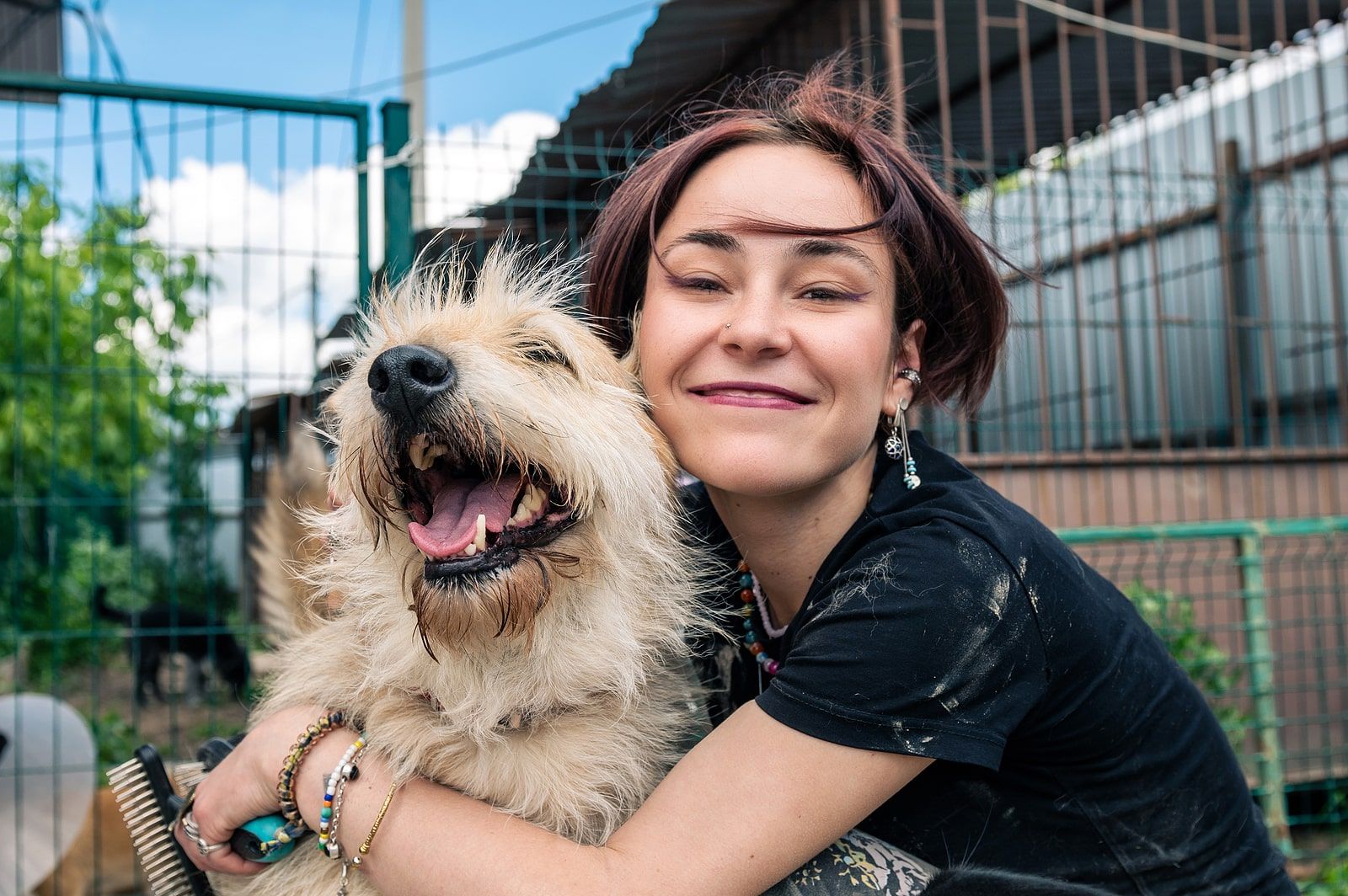Can Dogs Feel Unconditional Love?
Dogs have been humankind's loyal companions for thousands of years, and their unwavering devotion often leaves us pondering the depth of their emotions. Many pet owners have wondered: Is there a dog's unconditional love? This discusses the canine emotions, the role of oxytocin for dogs, and how to foster a deeper bond with your furry friend. Additionally, we'll explore how to naturally boost the production of oxytocin, the "love hormone," in your dog.

Can Dogs Feel Unconditional Love?
While dogs don't experience love like humans, their loyalty and affection are genuine and powerful. Their unwavering devotion and emotional connections with their human companions are often interpreted as a form of unconditional love. Here's why:
- Social Animals: Dogs are inherently social animals that thrive on human interaction. They form strong attachments and seek to be close to their owners. This behavior is a testament to their profound connection with their owners.
- Empathy: Dogs have been shown to exhibit empathy and emotional responsiveness towards their owners. They can sense their human emotions and respond with comforting behaviors, such as cuddling and licking.
- Loyalty: The loyalty and devotion dogs demonstrate, from wagging their tails to offering a comforting presence, are clear signs of a deep emotional bond.
- Forgiving Nature: Dogs are incredibly forgiving and can quickly overcome conflicts or moments of stress in their relationship with their owners, further highlighting their capacity for unconditional love.
The Role of Oxytocin for Dogs
Oxytocin, often called the "love hormone" or "bonding hormone," plays a significant role in forming emotional connections. It's not just humans who experience the effects of oxytocin; dogs do, too. This hormone is released in the brain when dogs interact with their owners and during various bonding activities. Here's how oxytocin influences the relationship between dogs and their human companions:
- Bond Formation: Oxytocin is crucial in forming strong bonds between dogs and their owners. It is released when dogs engage in activities that strengthen their connection, such as cuddling, petting, and gazing into their owner's eyes.
- Social Interaction: Oxytocin promotes social interaction and communication in dogs. It encourages them to seek out human companionship and engage in positive interactions.
- Stress Reduction: The hormone also helps reduce stress and anxiety in dogs, so they turn to their owners for comfort and support during challenging situations.
How to Bond with Your Dog
Fostering a deep bond with your dog is a mutually rewarding experience. Here are some tips on how to bond with a dog and enhance your relationship:
- Spend Quality Time: Dedicate time to play, cuddle, and participate in activities your dog finds enjoyable. Regular interaction builds trust and affection.
- Training and Positive Reinforcement: Training your dog using strategies for positive reinforcement, like rewards and praise, helps them associate you with positive experiences, strengthening your bond.
- Physical Contact: Physical contact, like gentle petting and hugging, can help release oxytocin in both you and your dog, enhancing your emotional connection.
- Eye Contact: Gazing into your dog's eyes creates a sense of intimacy and trust. It's a simple yet powerful way to deepen your bond.
- Outdoor Adventures: Exploring the outdoors together through walks, hikes, or trips to the dog park can be a great way to build a strong bond. These activities allow you to share experiences and create lasting memories.
How to Increase Oxytocin
Boosting oxytocin levels in both you and your dog can further enhance your emotional connection. Here are some strategies for how to increase oxytocin naturally:
- Hugging and Cuddling: Physical affection, such as hugging, cuddling, or petting, can stimulate oxytocin release. Spend quality time cuddling with your dog and experience a rush of the "love hormone."
- Gentle Grooming: Brushing and grooming your dog can be a soothing and bonding experience. It not only helps maintain their coat but also strengthens your connection.
- Positive Reinforcement: Training your dog using positive reinforcement techniques, with treats and praise, promotes oxytocin production in both of you.
- Regular Exercise: Physical activity, such as play and exercise, releases oxytocin in dogs and humans. Often, walk your dog or engage in fetch games to increase oxytocin levels.
- Shared Meals: Sharing a meal with your dog can create a sense of togetherness and promote the release of oxytocin. Just provide a balanced and healthy diet for your furry friend.
The Healing Power of Oxytocin
Oxytocin deepens the emotional bond between dogs and their owners and remarkably affects overall well-being. It reduces stress, lowers blood pressure, and promotes relaxation in dogs and their human companions. This hormone is vital to your beloved pet's physical and emotional health and can contribute to a harmonious and loving relationship.
The notion of unconditional love from your dog is a testament to the strong emotional connection between you and your furry companion. Dogs exhibit loyalty, empathy, and affection that deepen your bond. The role of oxytocin for dogs in forming these connections highlights the importance of positive interactions, physical affection, and shared experiences. By taking the time to understand and nurture this connection, you can enjoy the enriching and mutually beneficial relationship shared between dogs and their owners. If you have any questions, contact Forever Vets today.


